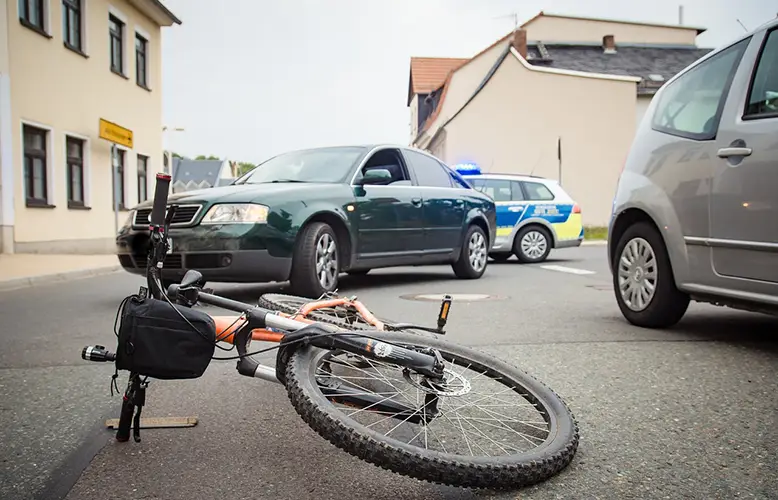Cycling through new landscapes can be exhilarating, but unexpected crashes can turn joy into panic. If you find yourself in a bicycle accident while traveling, knowing what steps to take can make all the difference in ensuring your safety and well-being. This guide will provide you with essential tips to handle a cycling mishap efficiently, helping you get back on track and continue your adventure with peace of mind.
Seek Medical Care
Seeking medical care immediately after a bicycle crash is crucial, even if injuries appear minor. The adrenaline rush from the accident can mask pain, potentially overlooking serious internal injuries or concussions that may become life-threatening if untreated. Prompt evaluation by a healthcare professional ensures that injuries are accurately diagnosed and treated, reducing the risk of complications.

When traveling, check for the nearest hospital or clinic using a smartphone or ask locals for assistance. If the injury is severe or you’re unable to move, call emergency services immediately. The team of attorneys from your preferred bicycle accident law firm will explain how documenting these as soon as possible can help you with insurance claims or any legal proceedings that may follow. Carry a basic first aid kit to manage minor wounds and stabilize yourself until help arrives. Remember, prioritizing your health by seeking timely medical care will expedite your recovery and allow you to continue your journey safely.
Assess Your Injuries
Assessing your injuries after a bicycle crash is critical to identify the severity and proper course of action. Even seemingly minor injuries can escalate if left unchecked, and some injuries may not manifest clear symptoms immediately. Start by checking for visible signs of trauma like cuts, bruises, and swelling. Evaluate your ability to move limbs without pain and look out for dizziness or confusion, which could indicate a concussion.
If you suspect any serious internal injuries, such as intense pain or difficulty breathing, seek immediate medical attention. For minor injuries, clean and dress wounds to prevent infection. Document your injuries with photos and notes, as detailed records can be invaluable for medical consultations and potential insurance claims. This thorough assessment helps ensure you get the necessary treatment to recover fully and safely continue your travels.
Report the Incident
First and foremost, reporting the incident creates an official record of the accident, which can be vital for insurance claims and legal processes. This documentation can corroborate your account, helping you receive appropriate compensation for medical expenses, damaged equipment, and any other losses incurred. Additionally, informing local authorities contributes to public safety by potentially addressing hazardous conditions that might have contributed to your crash.
To report the incident, start by contacting local law enforcement to file a police report. Provide all relevant details, including the location, time, and circumstances of the accident. If other parties are involved, exchange contact and insurance information. Upon returning home, notify your travel insurance and health insurance providers about the incident. Keeping copies of all reports and correspondence will help you track the progress of your case and ensure all necessary actions have been undertaken.
Document the Incident
Apart from calling the authorities to create documentation, you should do this on your own as well. These pieces will serve as evidence for any legal filings or insurance claims. Here’s what you should take down:
- Take photos and videos
- Note the date, time, and location
- Gather contact information
- Record witness statements
- Describe the incident
- Collect insurance information
- Obtain police report
- Keep medical records
- Document your expenses
- Notify relevant authorities
- Write a detailed account
- Save evidence
- Stay organized
Documentation provides essential evidence for insurance claims and legal proceedings, ensuring you receive appropriate compensation for medical expenses, equipment damage, and other losses. Detailed records also enhance your credibility and safeguard against discrepancies in witness accounts. Moreover, it helps authorities address any hazardous conditions that may have contributed to the accident, enhancing public safety for future travelers.
Contact Your Embassy or Consulate
Embassies and consulates can provide crucial assistance, such as helping you navigate local medical and legal systems, which may be unfamiliar and challenging. They can also offer support in locating reliable medical care, assist in replacing lost or stolen documents, and contact your family or friends to inform them of your situation. Additionally, they can provide updates on local safety conditions which may impact your travel plans.
To communicate with your embassy or consulate, locate their contact information via their official website or through travel documents you should carry. Most embassies have emergency contact numbers operational 24/7. Describe your situation clearly, including details of the accident, your location, and any immediate assistance you may require. Staying calm and providing precise information ensures that they can offer you the most relevant and timely support.
Hire a Lawyer
The aid of a legal expert is crucial due to the complex legal landscape surrounding personal injury and insurance claims, particularly when traveling. An experienced attorney can navigate local laws, negotiate with insurance companies, and ensure you receive fair compensation for your injuries and damages. They can also advocate on your behalf in case of any disputes, ensuring your rights are protected.
To find a lawyer, start by researching legal professionals who specialize in bicycle accidents or personal injury in the region where the crash occurred. Seek recommendations from local acquaintances or travel forums and verify the lawyer’s credentials and experience. Initial consultations can help you assess their suitability and understanding of your case, ensuring you have skilled representation as you recover and seek justice.
Talk to Your Insurance Provider
This is essential for securing financial aid and facilitating necessary medical and legal procedures. Promptly informing your provider helps initiate the claims process, ensuring coverage for medical expenses, damaged equipment, and other associated costs. Begin by calling your insurance company’s emergency hotline, and providing comprehensive details of the accident, including your injuries, medical assessments, and police reports.
Be ready to share photos and documentation you’ve collected. Clear, honest communication ensures your claim is handled efficiently, and keeping thorough records helps prevent discrepancies or delays. Follow up regularly to track your claim’s progress and ensure all required information is submitted on time, optimizing your chances of receiving fair compensation.

In navigating the aftermath of a bicycle crash while traveling, taking prompt and thorough action can make all the difference to your recovery and journey. From seeking medical care to documenting the incident and contacting relevant authorities, each step is pivotal. By following these guidelines, you ensure your safety and are well-prepared to handle any challenges, allowing you to return to your adventures with confidence.





